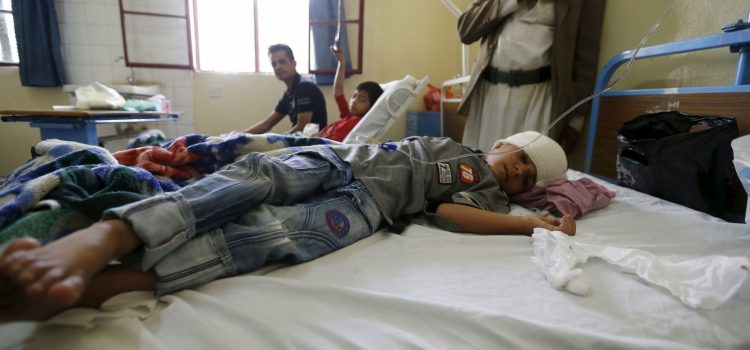Yemen under Saudi-imposed siege, thousands of patients suffer lack of medical supplies
The General Authority of Civil Aviation has launched a call to the United Nations, international and humanitarian human rights organizations and the Human Rights Council to take immediate action and lift the ban on Sana’a International Airport to save the lives of thousands of sick and those stranded abroad.
A statement issued by the agency denounced misleading announcements made by the Saudi-led coalition; attempting to deceive international public opinion regarding the formation of an air bridge for humanitarian flights to and from Sana’a International Airport.
The statement pointed out that those falsified statements came to alleviate the demands of international organizations on the need to reopen Sana’a International Airport immediately, considering the enforced closure a crime.
The statement also affirmed that the closure of Sana’a airport since the date of August 9, 2016, preventing even casual civilian flights, is contrary to the norms of humanity and an international flagrant violation of all relevant international conventions.
The Agency considered the closure of the airport as a breach of the resolutions of the Security Council and constitutes a collective punishment for all the people of Yemen, especially that the flights are of a purely humanitarian nature, and the imposed siege only further deteriorates the suffering of the Yemeni people at home and abroad.
The General Authority of Civil Aviation renewed the appeal to the international community and the Security Council to take a serious action about on the continued closure of the Yemeni civilian airports and the reopening of Sana’a International Airport immediately for humanitarian and civilian flights.
Speaking of the humanitarian conditions in Yemen, described as the worst in the world by the UN, thousands of kidney failure patients have been suffering the most from the imposed Saudi/American air, sea and land siege on Yemen.

According to local reports, various dialysis centers have shut down or are threatened with closure due to lack of required medical supplies and solutions.
Despite the disaster, this blockade is resulting in, international humanitarian organizations have not been able to put an end to the misery of thousands of innocent civilians due to easily-treated maladies if it was not for the lack of vital medical requirements prevented entry from the Saudi-led coalition.





